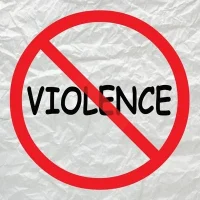Deadline: 05-Oct-2025
The United Nations International Children’s Emergency Fund has launched a new initiative in the Maldives that aims to strengthen adolescent health, safety, and well-being through an innovative sports-for-development approach.
With a funding allocation of $22,000, this pilot program is centered in Malé Atoll and seeks to combine structured swimming opportunities with broader health, education, and community development goals.
The program will establish safe and inclusive swimming facilities across five islands and Greater Malé. Equipped with trained lifeguards and designed to reduce access barriers, these facilities will particularly benefit girls, children with disabilities, and young people in remote areas. By addressing inequities in access, the initiative intends to normalize swimming as a life skill and provide a safe environment for young people to thrive.
Human capacity development is a core component, with at least 100 coaches, PE teachers, and youth leaders receiving specialized training. This training will not only focus on safe and inclusive swimming instruction but will also integrate lessons on psychosocial resilience, teamwork, nutrition, and healthy lifestyles. These efforts are expected to create a strong network of facilitators capable of sustaining the intervention well beyond the pilot phase.
The project directly targets improvements in child and adolescent well-being. Participants will develop essential survival skills, increase physical fitness, and gain mental health benefits such as stress reduction and improved resilience. By linking swimming with messages on nutrition and disease prevention, the initiative also strengthens knowledge and behaviors that reduce long-term health risks.
Community engagement is another cornerstone of the program. Schools, councils, CSOs, and youth groups will be mobilized to run inclusive events such as Fun Swim Days and Inclusive Swim Challenges. These outreach activities aim to engage at least 15 percent of each island’s population, encouraging broader community buy-in and challenging existing perceptions around swimming.
To ensure continuity and cultural relevance, the initiative will incorporate UNICEF’s Kihineh? and Kaigen Hingamaa campaigns, which provide age-appropriate and context-sensitive messaging on health and well-being. Furthermore, lessons learned from the pilot will be used to inform education, health, and sports policies, embedding swimming within national systems as both a life skill and a well-being intervention.
Through this integrated effort, UNICEF hopes to create a model that not only improves adolescent health but also builds safer, more resilient, and more inclusive communities in the Maldives.
For more information, visit UN Partner Portal.









































